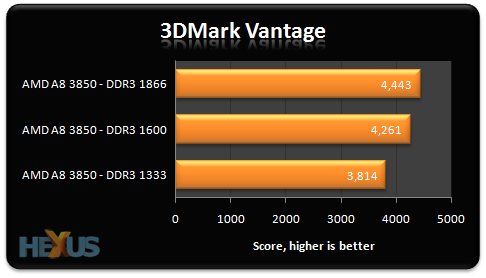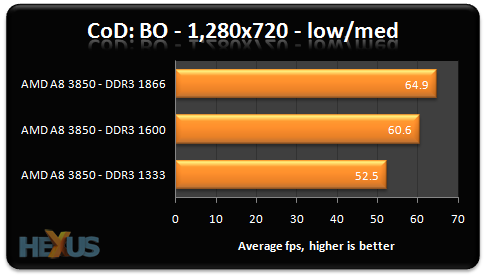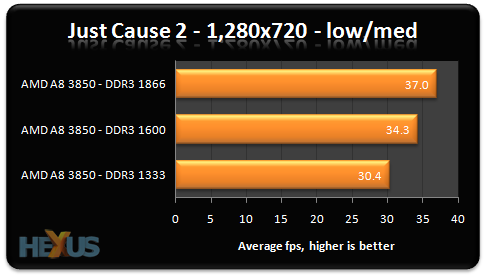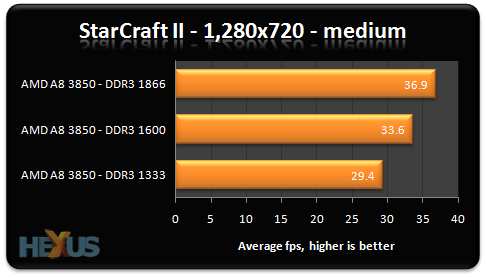Effects of memory-speed changes
We mentioned the frequency of system RAM plays an important role in determining overall performance, especially for the GPU part of the APU. The graphics grab all their bandwidth from the system, putting considerable emphasis on the speed of installed memory.
To test just how the RAM frequency plays out for gaming we configured it to run at three different speeds. Timings were kept identical (though this actually has the effect of reducing latencies for faster-speed memory)

There's a significant jump in all cases, as the GPU laps up the extra bandwidth on offer. Strapping in some 1,866MHz memory provides a 16 per cent jump in performance when compared to 1,333MHz memory.

The increase is more dramatic in Call of Duty: Black Ops, where, without changing the core clock, a 20-plus per cent improvement can be gained by boosting the speed of, well, the frame-buffer.


Similar gains in Just Cause 2 and StarCraft II. The price premium for DDR3-1,866MHz - £20 for over a DDR3-1,600MHz kit - may put a dampener on the upgrade, however.









